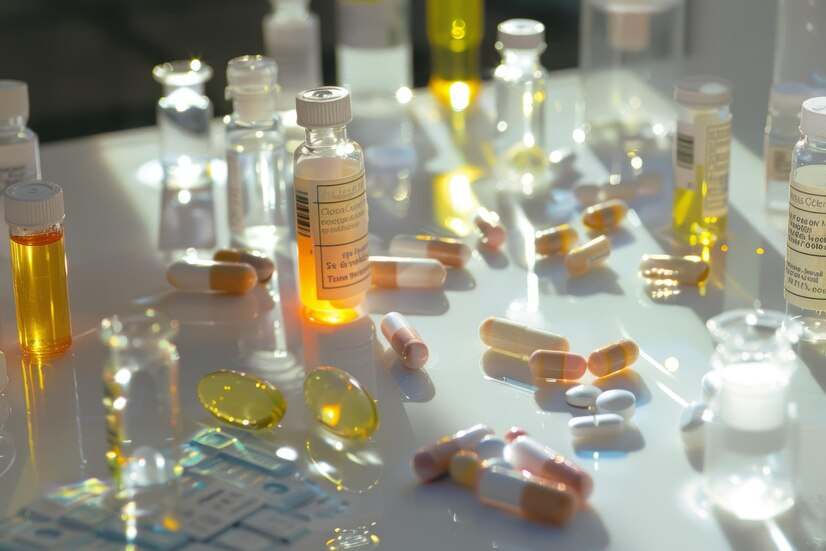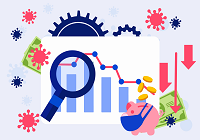Understanding Orphan Medicine: A Lifeline for Rare Diseases
In the world of healthy population, the term "orphan drug therapy" has a lot of meaning, especially for those suffering from rare diseases. But what does it really mean? Let's delve into the complexities of orphan drug designation and explore its definition, benefits, challenges, and major implications for patients and drug development.
Orphan Drug Designation
Orphan drug designation is a special status granted by regulatory agencies to drugs intended to treat, diagnose, or prevent rare diseases. In the United States, the Food and Drug Administration (FDA) defines a rare disease as one that affects fewer than 200,000 people in the country. The European Medicines Agency (EMA) uses a similar threshold, which defines a rare disease as affecting less than 5 in 10,000 people in the EU.
Reasons Behind Orphan Drug Designation
The drug's designation as an orphan drug is based on recognition of the unique challenges faced by patients with rare diseases:
1. Treatment options are limited: Many rare diseases have no effective treatment or no treatment at all due to their rarity and complexity.
2. Unmet medical needs: Patients with rare diseases often experience severe symptoms and decreased quality of life, so they need to be treated quickly.
3. Economic feasibility issues: Developing drugs for rare diseases can cause financial problems for pharmaceutical companies due to the small number of patients and the limited market.
Benefits of an Orphan Designation
1. Legal incentives
- Market Limitation: In the United States, orphan drug designation provides market access for 7 years after approval, thus preventing competition from similar drugs during that time.
- Financial incentives: Companies can receive tax credits for clinical trial costs to reduce the financial burden of drug research and development.
2. Development support
- Project support: Regulatory agencies provide guidance and support throughout the drug development process to promote a smooth approval process.
- Fee Waiver: Application fees for submitting the drug to authority can be waived or reduced to lessen the burden.
3. Expanding research opportunities
- Opportunities for Grants: Governments and non-profit organizations often offer opportunities for research into rare diseases and obsolete drugs.
Process For Submission:
- Inventor applies for FDA certification.
- Prescribing drugs without guaranteeing safety and effectiveness; this gives the sponsor an opportunity to receive benefits.
Delivery Method:
- CDER NextGen Portal: Submit applications through this portal.
- Email: Send a message to orphan@fda.hhs.gov.
- Letter: Send information to Orphan Product Development Department.
Challenges and Ideas
Although orphan drug labeling has many advantages, challenges remain are mentioned here:
- Complicated Regulatory Process: Meeting the regulatory requirements for drug labeling and approval can be difficult and time-consuming.
- High development costs: Despite incentives, drug development is still economically hindered by complexity and uncertainty.
- Ethical considerations: Balancing the need for affordable medicines with the financial viability of pharmaceutical industries remains a subject of ethical debate.
Impact On Patients and Society
Orphan drug designation changes the field of rare disease treatment:
- Better patient outcomes: Many patients with rare diseases receive life-saving treatments that were not available before.
- Stimulating innovation: Designation of banned drugs is an incentive for pharmaceutical companies to invest in rare disease research and development.
- Community support: Support groups and patient communities play an important role in raising awareness and lobbying for policies that support drug development.
Conclusion
Overall,orphan drug designation gives hope to individuals and families affected by rare diseases, paving the way for innovative treatments and improving quality of life. Although challenges remain, the combined efforts of regulators, pharmaceutical companies,and patient advocates continue to make progress in this area of medicine.Going forward, support and investment in drug development is critical to meeting the medical needs of patients with rare diseases worldwide.
Frequently Asked Questions

Optimize Your trial insights with Clival Database.
Are you exhausted from the uncertainty of trial insights pricing? Clival Database ensures the clarity in the midst of the global scenario for clinical trials to you.Clival Database is one of the best databases that offers an outstanding number of clinical trial data in terms of 50,000+ molecules and from primary regulatory markets as well as new entrants like Indian and Chinese markets.
Elevate your trial success rate with the cutting-edge insights from Clival database.
Check it out today and make more informed sourcing decisions! Learn More!







